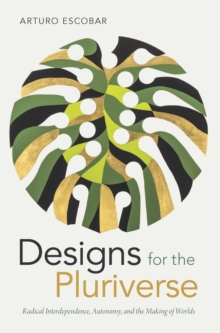
Rhythms of the Pachakuti : Indigenous Uprising and State Power in Bolivia Paperback / softback
by Raquel Gutierrez Aguilar
Part of the New Ecologies for the Twenty-First Century series
Paperback / softback
Description
In the indigenous Andean language of Aymara, pachakuti refers to the subversion and transformation of social relations.
Between 2000 and 2005, Bolivia was radically transformed by a series of popular indigenous uprisings against the country's neoliberal and antidemocratic policies.
In Rhythms of the Pachakuti, Raquel Gutierrez Aguilar documents these mass collective actions, tracing the internal dynamics of such disruptions to consider how motivation and execution incite political change. "In Rhythms of the Pachakuti we can sense the reverberations of an extraordinary historical process that took place in Bolivia at the start of the twenty-first century.
The book is the product of Raquel Gutierrez Aguilar's political engagement in that historical process. . . . Though of Mexican nationality, [she] was intimately involved in Bolivian politics for many years and acquired a quasi-legendary status there as an intense, brilliant activist and radical intellectual. . . . [Her account is] . . . itself a revolutionary document. . . . Rhythms of the Pachakuti deserves to stand as a key text in the international literature of radicalism and emancipatory politics in the new century."-Sinclair Thomson, from the foreword
Information
-
Available to Order - This title is available to order, with delivery expected within 2 weeks
- Format:Paperback / softback
- Pages:336 pages
- Publisher:Duke University Press
- Publication Date:24/08/2014
- Category:
- ISBN:9780822356042
Other Formats
- Hardback from £92.49
Information
-
Available to Order - This title is available to order, with delivery expected within 2 weeks
- Format:Paperback / softback
- Pages:336 pages
- Publisher:Duke University Press
- Publication Date:24/08/2014
- Category:
- ISBN:9780822356042










